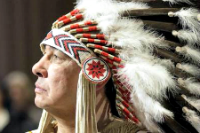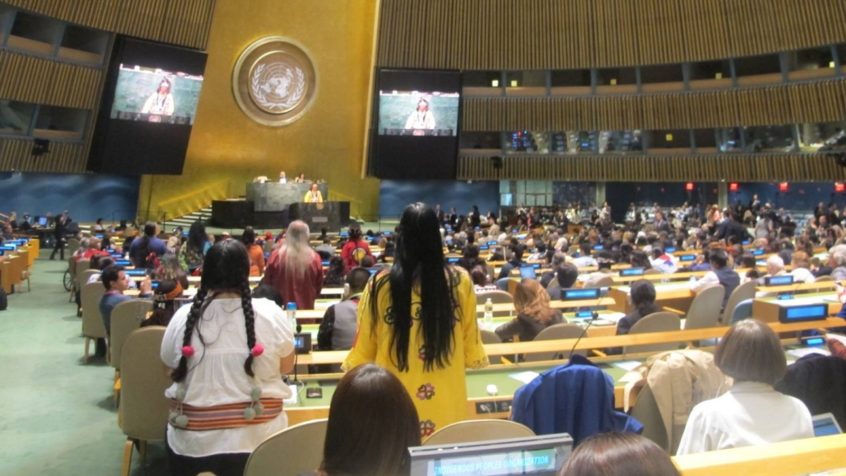The process to formulate the 2030 Agenda is described as one of the most inclusive in the history of the United Nations. Indigenous peoples were one of the nine ‘major groups’��that were involved in consultations and discussions in the lead-up to the adoption of the 2030 Agenda.
This was different to the development of the Millennium Development Goals where indigenous peoples were largely invisible. The processes towards adopting the 2030 Agenda for Sustainable Development were an opportunity to remedy the shortcomings and gaps of the Millennium Development Goals.
Indigenous Peoples have��been engaged in multiple ways in the journey from the MDGs to the new post-2015 framework:
Drawing attention to��inequality – E-discussions on Indigenous Peoples and the 2030 Agenda
From 27 November to 19 December 2012, the Secretariat of the Permanent Forum on Indigenous Issues and UNICEF co-moderated an����in the framework of the global thematic consultation on “Addressing Inequalities” in the Post-2015 Development Agenda.
The key-messages highlighted by indigenous peoples in the consultation was that the new sustainable development framework had to have��human rights and equality at the center – and endorse the fundamental concept of development with culture and identity. In terms of inequality, called for a stronger focus on both equality of opportunities and outcomes (or lack thereof), as well as��a focus on the��entrenched structural factors that lead to inequality, such as discrimination based on ethnicity, gender, age, location, etc. Participants to the e-discussion also underlined that the �山����system should reach out and engage in partnerships with indigenous peoples to ensure their effective participation in the post-2015 development agenda and any emerging sustainable development goals. The inputs should be guided by the principles of equality and non-discrimination and include voices from indigenous women, youth and children and persons with disabilities.
Other main priority areas identified by participants at the on-line consultation are the following:
1.��Recognition of indigenous peoples at national and international levels;
2.��Recognition of indigenous peoples’ collective rights, in particular the right to land, territories and natural resources;
3.��Enactment of intercultural and cultural-sensitive policies at the national level, especially in the areas of education and health;
4.��Prioritization of the special conditions and needs of indigenous women, children, youth and indigenous persons with disabilities;
5.��Recognition of culture as the 4th pillar of sustainable development, and the inclusion of the indigenous view of development with culture and identity;
6.��Enactment of the right to free, prior and informed consent in all matters affecting indigenous peoples;
7.��Establishment of partnerships for development issues relating to indigenous peoples.
Calling for indigenous priorities in the 2030 Agenda and indicator framework
The Permanent Forum on Indigenous Issues, the Major Group of Indigenous Peoples and many other indigenous peoples’ organisations and representatives have been engaged in the overall consultation process towards the formulation of the 2030 Agenda – and after it’s adoption on 25 September 2015, in the discussions around indicators, implementation, follow-up and review of the agenda. See below for statements and events made in this process:
- Permanent Forum Members’ engagement with post-2015 process facilitators��(18 May 2015)
- ��(23 September 2014)


